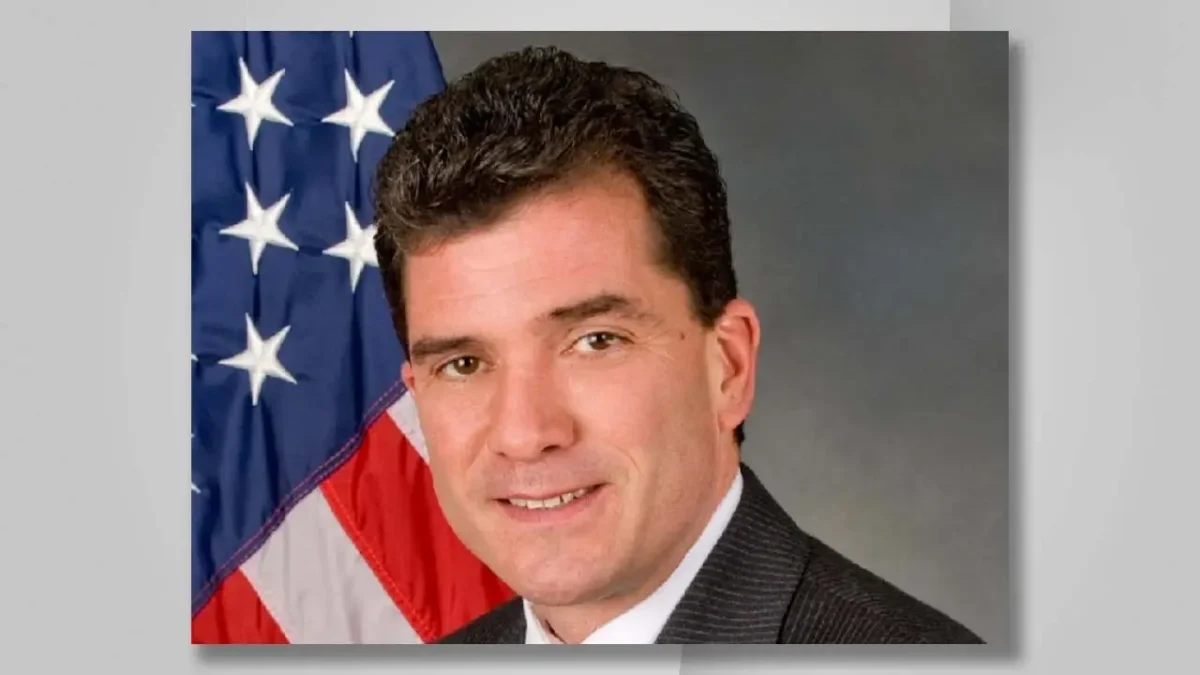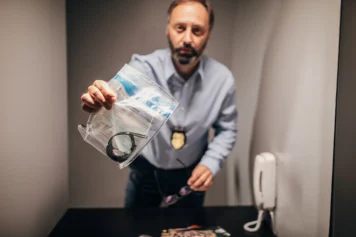An upstate New York judge who was caught on bodycam video shoving a police officer after brawling with his neighbors over a parking spot will remain on the bench.
The New York State Commission censured State Supreme Court Judge Mark Grisanti but decided he could keep his job. Six members voted to censure Grisanti, while four wanted him booted from the bench.
A censure is a formal declaration that a judge is guilty of misconduct that does not require suspension or removal.

The ruling stems from a fight in a Buffalo neighborhood that Grisanti and his wife had with their neighbors, the Meles, on June 23, 2020.
In an interview, Gina Mele said that the Grisantis had come home drunk to find a car belonging to one of the Mele’s family members parked in front of their house.
Surveillance footage shows a shirtless Grisanti and his wife confront their neighbors and trade some vulgar words before the entire party starts throwing punches.
During the fight, Grisanti’s wife bit Mrs. Mele’s husband, which Grisanti praised.
“She had no choice, really, but to bite him,” Grisanti said, according to commission documents. “And I’m glad she did.”
Police arrived to break up the scene. Bodycam footage shows one officer physically struggling with Mrs. Grisanti to handcuff her before taking her to the ground.
That’s when Grisanti stormed toward the officer, shoved him, and yelled, “You arrest my [expletive] wife…you’re going to be sorry,” and “My son … and my daughter are … both police officers.”
Grisanti was detained and placed in a police vehicle where he’s heard name-dropping more high-profile local and state officials he’s closely connected with, like Buffalo Mayor Byron Brown.
After Erie County prosecutors decided not to charge Grisanti, the Meles filed a complaint with the judicial commission, which took four years to resolve.
The state commission also discovered that Grisanti presided over eight cases involving a lawyer who bought his law practice. The attorney purchased the firm for $50,000 but continued paying Grisanti through 2019. Grisanti never disclosed the extent of their financial ties.
Commission members stated they looked through “every inch” of Grisanti’s career to come to their decision. They also considered other factors that might have contributed to the judge’s flare-up, like his concern for his wife’s safety, the recent loss of several family members, and a long-standing feud with the Mele family.
“The multiple-day hearing featured testimony from lawyers, court personnel, and other judges that Justice Grisanti is an exemplary judge who is diligent, hardworking and courteous,” the commissioners’ statement read. “Today’s decision concludes that, on balance, Justice Grisanti’s conduct during a two-hour period of one day, compared to his excellent record as a judge, does not warrant removal from the bench.”
The Grisantis aren’t strangers to public brawling.
In 2012, the couple got into a fistfight with members of the Seneca Nation at a black-tie event at the Seneca Niagara Casino in Niagara Falls. Grisanti was a state senator at the time. He claimed that he and his wife were attacked and beaten. While he stated he stepped in to defend his wife, some witnesses claimed he was the agitator, The New York Times reported.
This recent news on Grisanti comes more than a week after a New York county district attorney was caught on bodycam footage arguing with a police officer who tried to pull her over for speeding. She drove home, parked in the garage, and then cursed at the officer who followed her home and called the police chief in an attempt to avoid a citation. The incident raised controversy over abuse of power and clearly demonstrated how elected and appointed officials act above the law they are designated to uphold.


